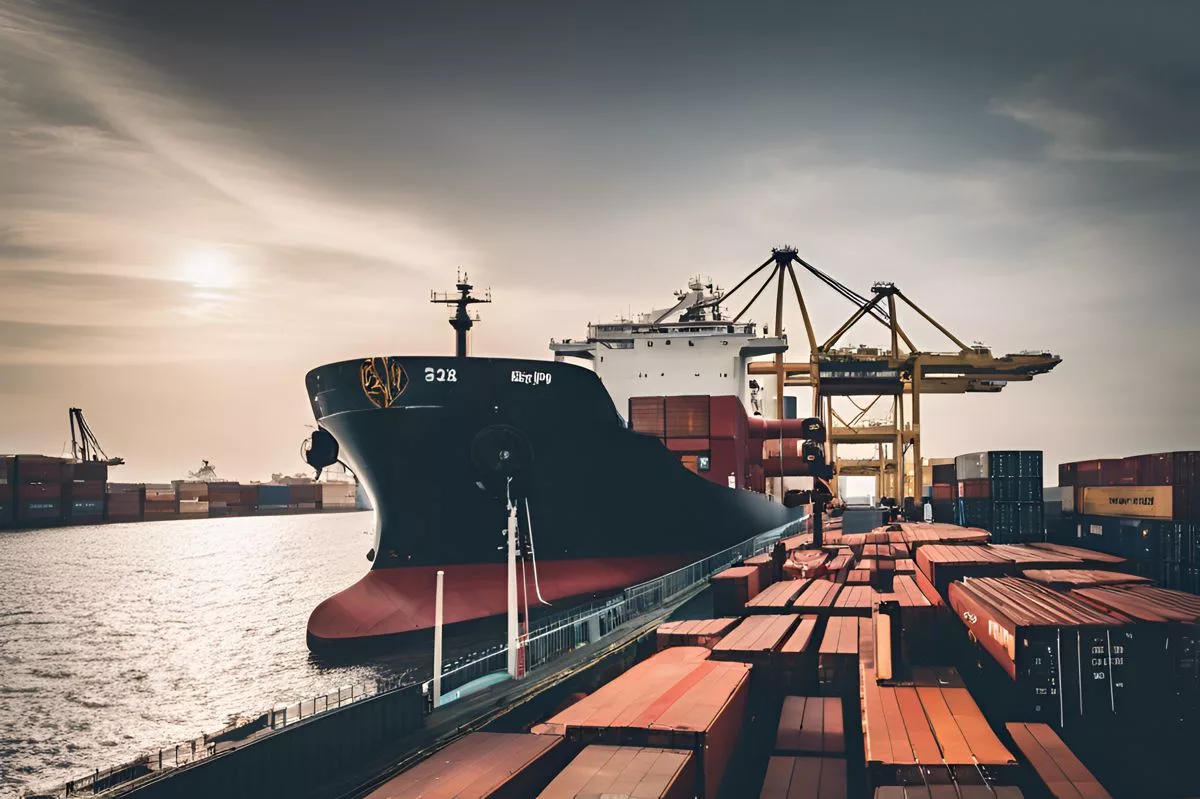South Africa’s ports are facing delays that are costing the economy R98 million per day, causing hindrances in import/export activities and stunting growth in various economic sectors. Clothing manufacturers and retailers are struggling to import necessary products and raw materials, while consumers face inflated prices for everyday essentials. Urging for reforms and private sector involvement, rectifying the situation could create job opportunities, bolster export volumes and significantly improve South Africa’s position in the global marketplace. Despite these challenges, there is hope for the future if appropriate policies and reforms are put into place.
The Economic Fallout from Delayed Ports
South Africa’s ports face delays costing the economy R98 million per day, hindering import/export activities and stunting growth in various economic sectors. Clothing manufacturers and retailers are struggling to import necessary products and raw materials, while consumers face inflated prices for everyday essentials. Urging for reforms and private sector involvement, rectifying the situation could create job opportunities, bolster export volumes and significantly improve South Africa’s position in the global marketplace.
The Economic Fallout from Delayed Ports
Ports are vital economic engines that drive trade and promote economic prosperity and stability within a country. However, South Africa’s crucial trade hubs currently face an assault that is costing the economy an alarming R98 million per day, signaling a clear need for immediate reforms to preserve the country’s economic wellbeing.
The scale of this issue is not lost on James Vos, the Mayco member responsible for economic growth in Cape Town. He acknowledges that the health of the nation’s economy is closely intertwined with the smooth operation of its ports. The current inefficiency in the handling of cargo doesn’t only disrupt import and export activities, but also stunts the growth of several economic sectors.
Take, for example, the plight of clothing manufacturers and retailers. Hindered by persistent delays at the ports, they are struggling to import necessary products and raw materials. In their scramble to keep their businesses operational, some have taken the drastic step of shipping containers to Walvis Bay in Namibia and then transporting goods by truck. This desperate response clearly illustrates the severity of the situation.
The Ripple Effect on Consumers and Industries
As Vos explains, the fallout from these delays is widespread, impacting not only the direct industries but also trickling down to the South African consumers. The latter are bearing the brunt of the crisis, as they are forced to contend with inflated prices for various goods. The cost of everyday essentials, from cooking oil and canned goods to smartphones, laptops, and medication, has skyrocketed due to these port delays. This unfortunate ripple effect has forced local retailers to transfer the increased costs onto their consumers.
The export sector, particularly fruit exporters, have also suffered considerable losses. As reported by Southern Africa’s Freight News, Hortgro, the industry’s representative body, noted a shocking 62% decrease in fruit exports via Cape Town during November and December 2023 compared to the same period the previous year.
Calling for Reforms and Private Sector Involvement
Vos, along with others, is urging the National Government to chart a definitive course of action to rectify the situation. This includes implementing stringent guidelines for the involvement of the private sector to prevent mismanagement and abuse. The introduction of private partners at the Ngqura Container Terminal in the Eastern Cape and Durban’s Pier 2 is a positive move, but the timeline for implementing such measures at Cape Town and other ports remains uncertain.
However, Vos remains confident about the potential benefits of an efficient port system. Besides creating job opportunities and bolstering export volumes, it could significantly improve South Africa’s position in the global marketplace. If necessary upgrades and maintenance are undertaken, Vos predicts an economic infusion of R6bn and the creation of around 20,000 new jobs.
Potential Gains for the Textile Industry and the Road Ahead
The textile industry, in particular, could benefit from reduced duties on imported goods used in clothing manufacturing. Vos points out that the 22% duty reduction on imported woven fabric in 2021 significantly improved the industry’s cost competitiveness. Further expanding these duty reduction measures to yarn and knitted fabric could enhance the global competitiveness of locally manufactured products.
Despite the present challenges, Vos retains a hopeful vision for South Africa’s economy. With appropriate policies and reforms, the country’s ports can regain their efficiency, serving as the strong economic pillars they once were. The time for decisive action and comprehensive solutions is now, and South Africa is ready to meet this challenge head-on. Much like the seas they navigate, economies are often tested by turbulent waters; resilience and adaptability guide the way to more promising and tranquil waters ahead.
1. What is causing delays in South Africa’s ports and what is the economic impact?
South Africa’s ports are facing delays, costing the economy R98 million per day. This is causing hindrances in import/export activities and stunting growth in various economic sectors.
2. How are clothing manufacturers and retailers affected by these delays?
Clothing manufacturers and retailers are struggling to import necessary products and raw materials, leading to a scramble to keep their businesses operational. Some have even resorted to shipping containers to Walvis Bay in Namibia and then transporting goods by truck.
3. How are consumers affected by these delays?
Consumers are facing inflated prices for everyday essentials such as cooking oil, canned goods, smartphones, laptops, and medication due to the ripple effect of these port delays.
4. What is being done to address the situation?
Officials including James Vos are urging the National Government to chart a definitive course of action to rectify the situation. This includes implementing stringent guidelines for the involvement of the private sector to prevent mismanagement and abuse. The introduction of private partners at some ports is a positive move.
5. What are the potential gains for the textile industry?
The textile industry could benefit from reduced duties on imported goods used in clothing manufacturing. Expanding these duty reduction measures could enhance the global competitiveness of locally manufactured products.
6. What is the outlook for South Africa’s economy?
With appropriate policies and reforms, the country’s ports can regain their efficiency, serving as the strong economic pillars they once were. The time for decisive action and comprehensive solutions is now, and South Africa is ready to meet this challenge head-on.












